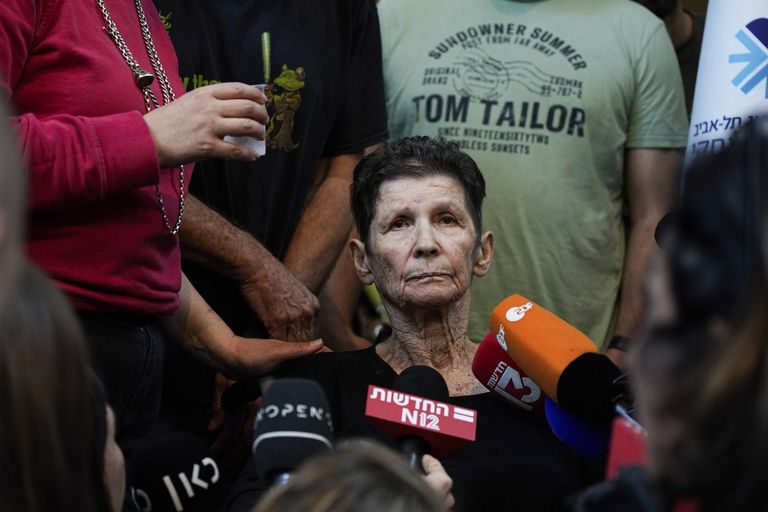Travel Tips
Lorem ipsum dolor sit amet, consectetur adipiscing elit.
Search

Due to the protracted nature of the Israeli-Palestinian conflict, parties outside the region have been active for many years. The outside world becomes curious about what is going on between the two countries as a result of this conflict and violence. Considering all of this, it follows that the events in Israel and Palestine have transcended national boundaries and entered the thoughts and emotions of people all over the world. The media has a significant and deciding influence in this situation. Major media outlets like the BBC and other local media also play a big part in influencing public opinion regarding the conflict. Studying these media's mechanisms and potential drawbacks is therefore strongly advised and recommended.
Due to the protracted nature of the Israeli-Palestinian conflict, parties outside the region have been active for many years. The outside world becomes curious about what is going on between the two countries as a result of this conflict and violence. Considering all of this, it follows that the events in Israel and Palestine have transcended national boundaries and entered the thoughts and emotions of people all over the world. The media has a significant and deciding influence in this situation. Major media outlets like the BBC and other local media also play a big part in influencing public opinion regarding the conflict. Studying these media's mechanisms and potential drawbacks is therefore strongly advised and recommended.
Amal Jamal's Media Politics and Democracy in Palestine discusses the more sophisticated interaction that exists between the media and the government on one side of the conflict. He also highlights the challenges that the Palestinian local media experienced during this time. Jamal notes that there hasn't always been a powerful Palestinian voice in the public sphere speaking to the rest of the globe. Palestinian politics and organizations have benefited greatly from the involvement of the media on the inside, but globally, it has not been a major force. For this reason, according to some, its voice has been ignored for a long time.
During the Israeli settlement and expansion period Palestinians started building their media into a more powerful institution under the Palestinian Liberation Organization. This transformation started in 1967. They started a series of periodicals that were circulated throughout Israeli-occupied territory after launching their radio broadcasting network with assistance from other Arab countries. After the Oslo Accords, in the early 1990s, the Palestinian Authority replaced the Palestinian Liberation Organization, which resulted in further advancements in media technology and power. However, it became unstable and less effective than previously believed after the Arab defeat in the 1970s.
One of the main international media outlets that reported on events in Palestine was the British Broadcasting Corporation (BBC). The BBC has a commercial division called BBC News that is responsible for obtaining and distributing news and current affairs on a national and worldwide scale. They claim that the BBC still upholds its three fundamental goals of entertaining, teaching, and informing despite being overseen by the UK government.
Even though certain evidence proves the biases of BBC. when Hamas freed an old woman from their hostages she was convinced in interviews that she was treated well. but BBC has reported it as she stated Hamas attacked her. The chairman of Arab Media Watch, Sharif Nashashibi, lists several significant problems with BBC transmission. he stated, "The primary concern is location. One of the BBC's worst errors was not having journalists in Gaza and the West Bank. Some people think less of the BBC because they have people writing reports about these places who aren't present when the events occur. Additionally, he makes the case that the BBC occasionally refers to Israel as "us" while referring to Palestine as "they".
when Hamas freed an old woman from their hostages she was convinced in interviews that she was treated well. but BBC has reported it as she stated Hamas attacked her. The chairman of Arab Media Watch, Sharif Nashashibi, lists several significant problems with BBC transmission. he stated, "The primary concern is location. One of the BBC's worst errors was not having journalists in Gaza and the West Bank. Some people think less of the BBC because they have people writing reports about these places who aren't present when the events occur. Additionally, he makes the case that the BBC occasionally refers to Israel as "us" while referring to Palestine as "they".
Al Jazeera Media Network, a state-owned media conglomerate in Qatar, has also come under fire for its ongoing coverage of Palestine without giving Israel much thought. Al Jazeera is moreover using a terminology that is sympathizing with the concept of martyrdom, and specifically the martyrdom in the Palestinian context. The agency contradicts itself in this instance when it says it reports without taking politics into account.
The presence of a biased vocabulary in Al Jazeera's reports is not conclusively proven by the existence of a single term, "martyr." While this term suggests a potential bias, it doesn't necessarily confirm an obvious lexical structure throughout the entire reporting.
Since there is only one term that suggests a biased vocabulary, it is not proven that AlJazeera does have an evident lexical structure in its story, except that the phrase “martyr” suggests the existence of one.
Finally, the prejudiced reporting of news has frequently resulted in both physical and psychological distress worldwide, such as the tragic killing of a young boy in the United States amid the Israel-Palestine conflict. Hence, it is crucial for international laws to closely monitor and assess such situations.
Comments